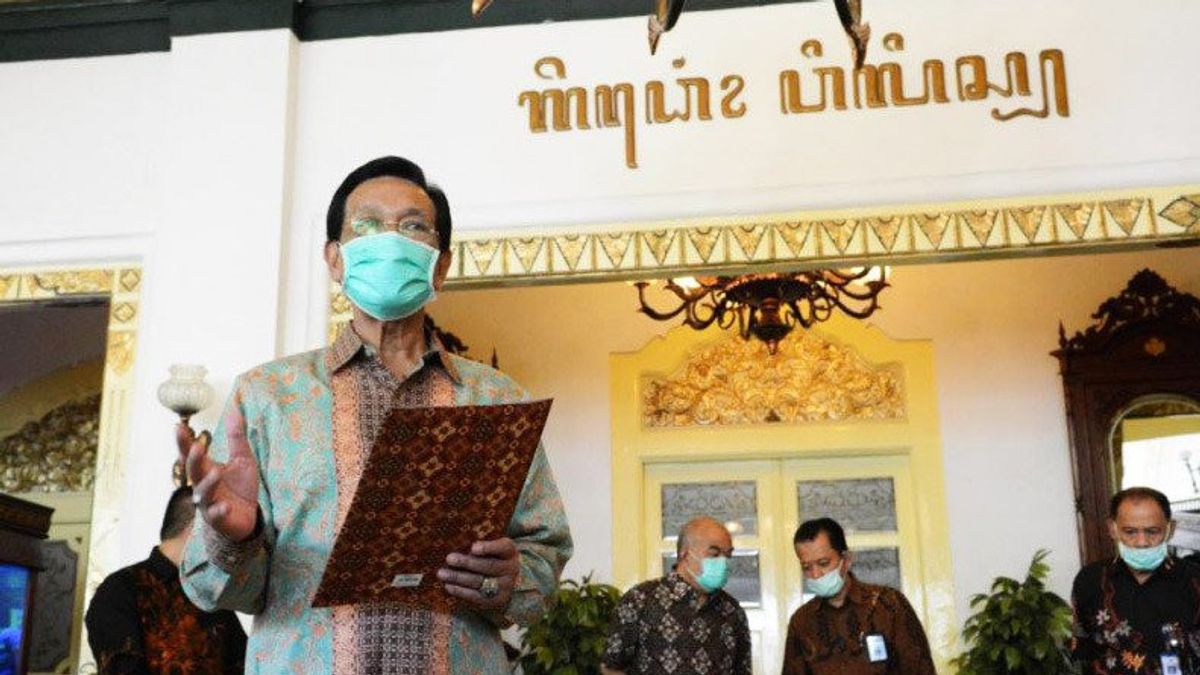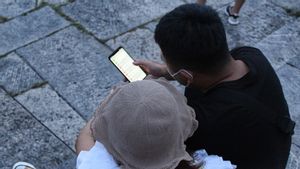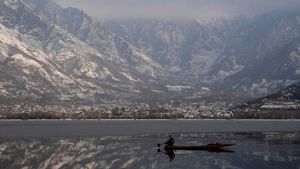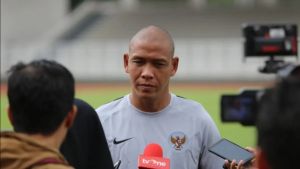YOGYAKARTA - The Governor of the Special Region of Yogyakarta Sri Sultan Hamengku Buwono X proposed the stipulation of March 1 as a National Holiday.
The proposal was to commemorate the General Offensive of March 1, 1949, which was a response to the Dutch Military Aggression II on the occupation of the Indonesian capital in Yogyakarta, which could not be separated from the role of Sri Sultan HB IX and the Great Commander General Sudirman.
"Not to characterize someone, but an effort to remember the unity of the TNI's struggle with the people," said the Sultan during a meeting to discuss the DIY Regional Government's proposal on the determination of March 1 as the Indonesian National Day virtually at Gedhong Pracimasana, Kepatihan Complex, Yogyakarta, quoted by Antara, Tuesday. , October 12.
In an online meeting attended by the Ministry of Home Affairs, Kemenpan-RB, Kemenristek Dikti, Kemensetneg, Kemenkum HAM, and Kemenko Polhukam, Sultan said March 1, 1949 was the initial milestone for the resumption of the struggle to defend Indonesia's independence.
According to the Sultan, this event is not only meaningful for the people and the DIY Government but is also very important for the entire Indonesian nation.
"Those involved in this historic event were not the freedom fighters from Yogyakarta themselves, but they came from all over the country," he said.
Sri Sultan HB X said, the establishment of the Republic of Indonesia has gone through a long historical process since the roots of colonialism in Indonesia grew in the early 17th century until the end of the war for independence in 1949.
The series of events, said the Sultan, has given birth to national heroes and some of these events have been commemorated as National Holidays.
The Sultan considered that many important events had not yet received official recognition by the state, such as the proposal which in Indonesian historiography is known as the General Attack of March 1, 1949.
"In fact, this incident was a response to the Second Dutch Aggression on the Dutch occupation of Yogyakarta, the capital of the Republic of Indonesia," he said.
The King of the Yogyakarta Palace emphasized that the General Offensive of March 1, 1949, made the Republic of Indonesia re-established its sovereignty.
The attack, said Sultan, was designed as a military political event so that the Republic of Indonesia was considered to exist even though the country's leadership was captured and proved to have an international impact.
In this regard, he sees the need for a follow-up to the proposal for March 1 as a National Holiday, including conducting periodic national socialization since the proposed third year in 2021 as directed by the Ministry of Home Affairs.
Locally in Yogyakarta, the commemoration of the March 1 General Attack is routinely celebrated with a variety of activities, including historical reflection discussions, to exhibition art titles.
Sultan said that in today's context, the values of struggle need to be continuously maintained as a source of national spirit.
"The spirit and fighting spirit are still needed throughout the ages, because nation building requires heroism and the tenacity of its fighters," he said.
The Sultan appreciated all ranks who contributed to the early process of determining the March 1, 1949 General Offensive to become a National Holiday as part of Indonesia's national history.
"With the stipulation of the General Offensive of March 1, 1949 as a National Holiday, it becomes an unforgettable collective memory in the history of upholding the Proclamation of the Republic of Indonesia on August 17, 1945," he said.
The Head of the DIY Culture Service, Dian Lakshmi Pratiwi, added that Sri Sutan HB IX was an important figure behind the big event.
Sri Sultan HB IX, he said, at that time sent a letter to Panglima Sudirman and recommended an attack to retake Yogyakarta from the Dutch.
"The General Attack was carried out on March 1, 1949 at 06.00 am, along with the sounding of the siren signaling the end of the curfew, and the news of this victory then spread until it finally reached Washington DC, the United States of America where at that time the United Nations was convening and attended by representatives of Indonesia, " he said.
The English, Chinese, Japanese, Arabic, and French versions are automatically generated by the AI. So there may still be inaccuracies in translating, please always see Indonesian as our main language. (system supported by DigitalSiber.id)













